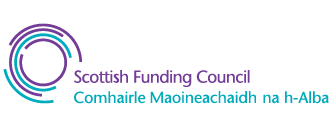Image credit: Bee Hughes, Lifetime Supply (2017-2019), hand painted clay, installation photograph from Periodical, curated by Bee Hughes (2018) as part of Being Human festival of the humanities. Copyright Bee Hughes
"I love old stories and things, and how they can help us understand and break out of our destructive habits of thought on gender, humans and the planet. My main expertise is in medieval German literature, and my current research is on menstruation."
The project aims to understand why Scotland is currently at the forefront of campaigns to end period poverty, and to track and record the fast-moving debates on this issue. Our working hypothesis is that the Scottish policy has less to do with tackling stigma for the women and of others who menstruate, and more to do with the independence movement.

We are planning to write an open-access white paper that can be consulted by quangos and political decisionmakers across the world, because period poverty is coming onto the agenda more and more countries world-wide. Within our Menstruation Research Network, we hope to use our knowledge of the Scottish developments to understand and predict similar movements against menstrual stigma elsewhere.
Adding value to Scotland
It was time to take a good look at Scotland’s current state from an unusual but revealing perspective. We can tell so much about a society from paying attention to what it finds disgusting and what it tries to hide – such as menstrual blood – and what it sees as solutions that it tries to promote and distribute – such as tampons, pads and menstrual cups. Our white paper will give the public sector, politicians and producers of menstrual products in Scotland a more wide-ranging understanding of the issues involved in period poverty and allow them to draw on the expertise of our international collective in a variety of geographical, historical and thematic areas and disciplines. We aim to provide an impartial forum for diverse perspectives on the campaign. Activists, artists, academics, charities and quangos are engaging with the work of the Menstruation Research Network and with this project and our workshops. An impartial account of the world-leading position of Scotland in period poverty, without glorifying the campaign and its motivations, will ultimately enhance Scotland’s reputation as a self-critical nation that thrives on debate.
"It’s an amazing opportunity to work and bond with some very talented, knowledgeable and friendly scholars. We’re building a real interdisciplinary community that is just at the beginning of what I hope will be many more collaborations."
Advice for future grant recipients
Give yourself plenty of time to write the application. It takes a lot of organisation to bring together an engaged group and get them to agree democratically on an approach. If you get the grant, be prepared for anything – we have had industrial action on an unprecedented scale and a pandemic so far! We have made the most out of our enforced physical isolation from each other and from our archives by turning a traditional conference into a series of regular virtual meetings, hearing from amazing speakers whose air fares we could never have afforded. We’re getting to know each other very well. Instead of our hands-on public events, we are planning a Wikipedia Edit-A-Thon to make our research available to anyone.
#3 image credit: Bee Hughes | Dys-men-o-rrho-ea (iii) 2019 | selection from private performance documentation, digital photograph | Copyright Bee Hughes
"Great teachers made me fall in love with literature, the humanities, medieval texts and literary theory. What keeps me going is the intellectual challenge of understanding complex literary and theoretical texts, the way that medieval texts get across a world-view that seems familiar but ends up questioning all our most deeply engrained assumptions, and the new ideas I get from working with my students and colleagues"
What’s next?
I hope to take the Menstruation Research Network to the next phase of funding. I’m also working on two other research projects: how one story cycle spread and mutated across the globe in the Middle Ages, and how medieval culture can inspire us to think differently about things and materiality. And then there is the day job teaching German at St Andrews, for which I am very grateful.

